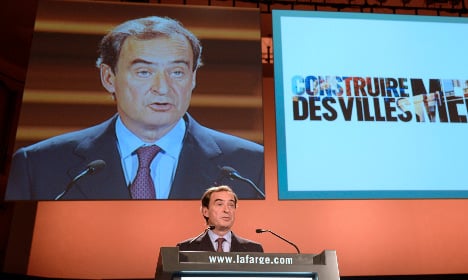Lafarge chief executive Bruno Lafont has been awarded a €2.5 million ($2.8 million) bonus for the successful merger with Swiss rival Holcim as the cement company announced job cuts.
The board of directors of the company awarded Lafont the money “for his key role in the merger project with Holcim” and “his exceptional performance,” according to a document posted on its website.
The Board accorded the bonus at a meeting on May 12, two days after Holcim shareholders approved the merger by a vote of 94 percent.
Lafont, who will receive the money in May, will become co-president of the merged LafargeHolcim.
The 40 billion euro merger will create the world's largest cement company with some 136,000 people, annual sales of €32 billion and underlying profits of €6.5 billion.
Union sources said Tuesday that Lafarge was planning to cut 380 jobs as part of the merger, while Holcim said Wednesday that it would eliminate 120 posts in central administration in Switzerland due to the tie-up.
The CFTC, the largest union at Lafarge, described the as bonus “scandalous” and called on Lafont to honour his statements made during the merger talks that no workers would lose out.



 Please whitelist us to continue reading.
Please whitelist us to continue reading.
Member comments